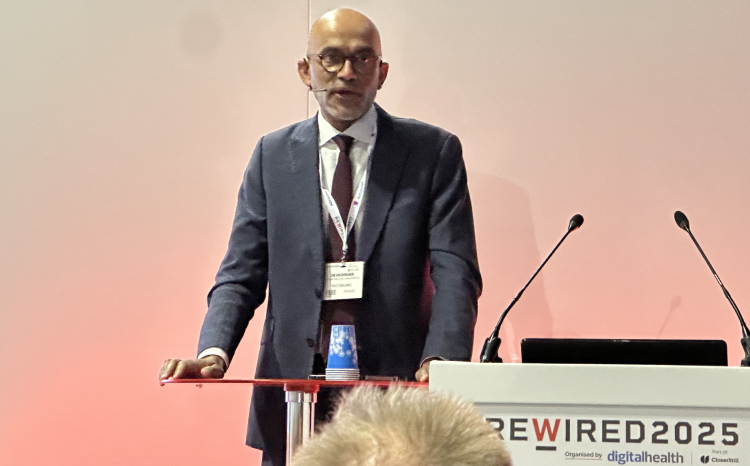What to expect from EPR transitions in 2023 and beyond
- 3 April 2023

Electronic Patient Records (EPR) are essential to delivering more joined up and integrated care. NHS England’s stated aim is for all hospitals to have an EPR in place by 2025. We know that better use of data and technology has the power to improve the quality of care and reduce the cost of health and care services overall. However, technological innovations are constantly being made, and we have seen EPR transitions rapidly evolve during the 12 years of us delivering such projects. So, as we move closer towards the 2025 deadline, what trends can we expect to see for EPR transitions, and how can the NHS benefit from them?
“There’s no doubt EPR transitions have created tangible benefits at a local level. With ICSs now responsible for developing shared care records within their area, it’s important that learning from previous work is shared and built on to make sure EPR’s are implemented in the most effective way.
We have carried out a number of EPR transitions to date across Epic, Cerner, and Lorenzo. Experience shows that having a proven methodology to the analysis, vendor management and testing is key to the success as well considering wider national, social and community care stakeholders in the final solution.” – Marcus Davies, CEO Integrella.
We expect Business Intelligence (BI) to play an increasingly important role during and after EPR implementations going forward. BI in healthcare can help healthcare organizations make data-driven decisions that improve patient outcomes, enhance operational efficiency, and support financial sustainability. The NHS can sometimes view BI as an unnecessary expense, however as BI typically involves the collection of data from various sources including patient satisfaction surveys, clinical data registries and of course electronic health records, it can be a worthwhile investment when it comes to reporting on digital progress. A small minority of Trusts regularly use BI tools and techniques such as data mining, predictive analytics, and statistical analysis to identify patterns, trends, and insights in the data. This makes the reporting of the success and benefits of EPR transitions clearer and easier to digest. Which can then support a Trusts case going forward for system upgrades and updates which may initially be considered low priority, but on a day to day they allow practitioners to continue working efficiently.
As we continue to see the growth of the telehealth industry, we can also expect to see the benefits of EPR transitions being supported by health tech companies. Successful EPR transitions can streamline telehealth operations by providing quick and easy access to patient data. This can reduce administrative tasks and, in the long term, improve the speed and accuracy of diagnoses whilst giving access to accurate and up-to-date patient data. Potentially, this could include medication lists, allergies, past medical history, and more. As the NHS continues to work with health tech companies to supplement certain services, we may see telehealth companies more inclined to work with Trusts that have successfully implemented EPRs simply because of the greater data analysis.
We know that staff find using a computer for documentation much more efficient than filling out forms by hand. EPRs allow staff to quickly move from one patient’s record to another, and multiple staff members can access records at the same time. We currently see how this benefits healthcare professionals working within hospitals, but what could this potentially mean for those working within the community care system?
Reports show that the introduction of an electronic documentation system allows staff to spend less time on documentation. This gives staff more time for direct care. For staff working within the care sector, this is particularly appealing and could contribute to various nursing processes, such as assessment and care planning, and writing daily progress notes and handover forms. Consequently, EPRs may assist staff to deliver a more person-centred approach to care. We are seeing an increase in Care Homes reaching out to the NHS for guidance on EPR implementations and hopefully this will lead to greater transferability of information across multiple stakeholders including Hospitals and GPs to Care Homes which would allow for a more integrated approach to care provision.
A healthcare cultural shift on the horizon
In 2022 NHS leaders were told that they must draw up plans to level-up and converge the electronic patient records (EPRs) in use across Integrated Care System (ICS) boundaries. Integrella recognises there is currently a great deal of variation across the NHS and some places are steaming ahead on their road to digital maturity which may add to the national postcode lottery. This is why we work efficiently and effectively with Trusts to launch EPR integrations which enhance clinical benefits for Trusts, including improving and digitising previously manual, time-consuming processes.
There is a cultural shift on the horizon in the way the NHS and UK healthcare system operates and delivers healthcare. At Integrella, we have seen first-hand the positive healthcare outcomes that can arise when investing in the correct technology, and we believe this will benefit the NHS from an economical and methodical perspective. It is therefore crucial that EPR transitions are looked at as a strategic investment that improves long-term population health management as opposed to an ongoing operational cost.
Contact Integrella:
Address:
Integrella Ltd
25 Eccleston Place
London
SW1W 9NF
Telephone: 0207 043 0920
Email: info@integrella.com
Twitter: @IntegrellaUK
LinkedIn: Integrella




